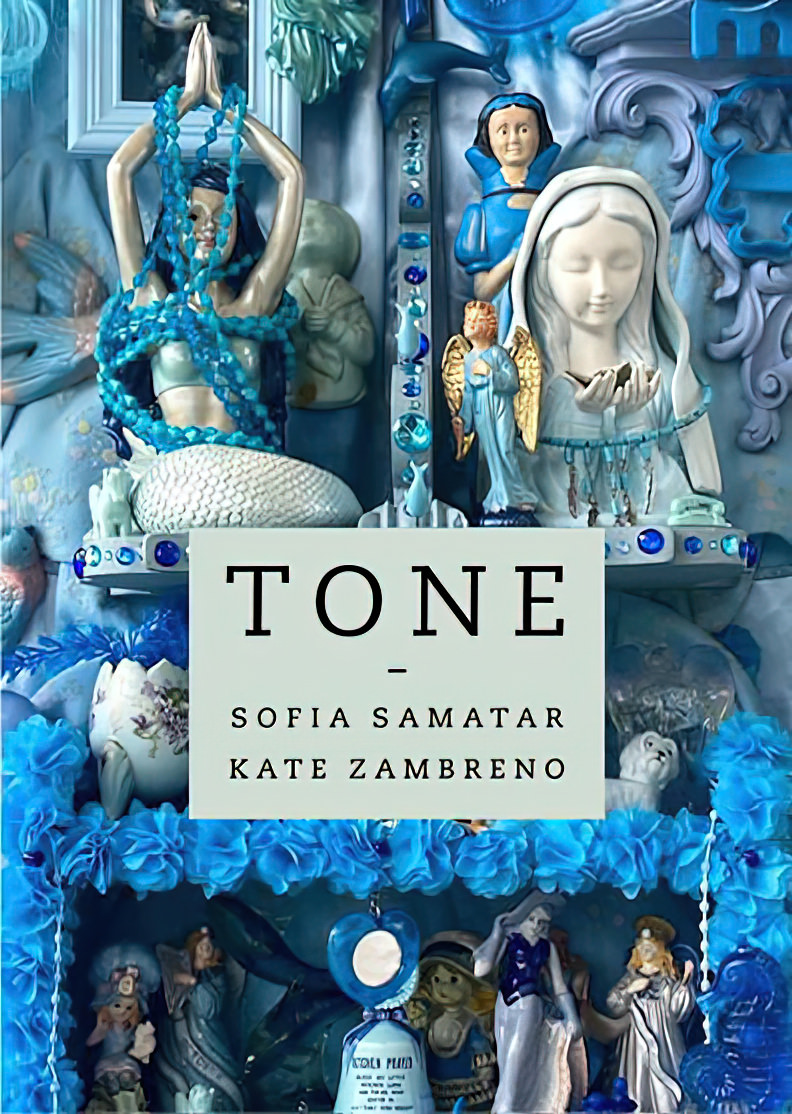Tone
Tone is a collaborative study of literary tone, a notoriously challenging and slippery topic for criticism. Both granular and global, infusing a text with feeling, tone is so difficult to pin down that responses to it often take the vague form of “I know it when I see it.”
In Tone, a cooperative authorial voice under the name of the Committee to Investigate Atmosphere begins from the premise that tone is relational, belonging to shared experience rather than a single author, and should be approached through a communal practice. In partnership, the Committee explores the atmospheres emanating from texts by Nella Larsen, W. G. Sebald, Heike Geissler, Hiroko Oyamada, Mieko Kanai, Bhanu Kapil, Franz Kafka, Renee Gladman, and others, attending to the chafing of political irritation, the hunger of precarious and temporary work, and the lonely delights of urban and suburban walks.
This study treats a variety of questions: How is tone filtered through translation? Can a text hold the feelings that pass between humans and animals? What can attention to literary tone reveal about shared spaces such as factories, universities, and streets and the clashes and connections that happen there? Searching and conversational, Tone seeks immersion in literary affect to convey the experience of reading—and living—together.
“Just as the world laments the apparent lack of insightful literary criticism as well as the dwindling number of venues that support it, here comes the dazzling Committee to Investigate Atmosphere with a piece of criticism like no other. Written collaboratively and in luscious, piercing dialogue with students and peers, Kate Zambreno and Sofia Samatar set out to interrogate the question of tone from every angle imaginable: what it is or might be, how it wraps around the human and non-human, how it affects work and space, rooting readers in territories through specific prepositions; why it has proclivity for windows and community. Reading thickly and in context a to-die-for selection of contemporary creative and theoretical works—including, lo and behold, texts in translation—the Committee reminds us that often we read books less for plot, character or setting, and more for the quality of atmosphere, seeking—quite simply and quite momentously—to ‘breathe that air again.’”
— Cristina Rivera Garza
“The ‘we’ generalizes beyond the Committee. And to the extent we, as readers, are invited to join this more general ‘we,’ Tone offers us a model with a few lessons on how to do literary criticism today. Carrying on and re-making collaborative methods of literary scholarship (the authors acknowledge Fred Moten/Stefano Harney and Laurent Berlant/Kathleen Stewart), the collective voice of Tone brings new urgency, transparency, and intimacy to the act of coauthorship.”
— Charlie Hope-D’Anieri, ASAP/Journal
“[A] vital resource for imagining the future of creative work in the twenty-first century.”
— Safa Khatib, The Markaz Review
“A literary translator is frequently asked how she has sought to preserve the tone of her author; or, has she chosen to translate that book because she appreciated its tone? In book reviews, a translation’s tone is as frequently complimented as it is criticized, and most often, little more about the translation is said. We all know what we mean by tone, right? This is why the Committee’s intervention is so vital: they are starting from scratch; and they are starting by scratching, rubbing, relating, touching, tending. They are reading and repeating: the blue you see is not the same blue that I see; I hear you differently than you want to be heard; my nose, my room, my furniture, my language is not the same as yours.”
— Claire Foster, Arcade
“This book is a gorgeous inventory of baroque intensities, spooked consciousnesses, vibrational affectivities, and shifting moods—written in and through precarity’s duration. The Committee has convened to remind us, in shimmering and intricate prose, that all thinking is collective thinking. In the doorway of thought: a ‘we’ steps into the weather of literature.”
— Jackie Wang
“In this subtle, haunting study, ‘the Committee’ investigates what it means to write both of and on the cloud. Sofia Samatar and Kate Zambreno gave themselves over to the nebulous space of a collective reading and writing practice, seeking neither plot nor character, but rather that most indefinable of literary qualities: tone. Joining them there is eerily calming: ‘Someone else has entered the chat. And so here we are.’ After three years of constant, anxious reminders that we are breathing each other’s air, try as we might to remain particular, there is something immensely gratifying about surrendering to this pronoun of our plural, historical intimacy.”
— Barbara Browning
“Their approach uses and subverts academic conventions. They employ the academic apparatus of the abstract, keyword list, and significance statement, but 'are still unsure, at the present time, whether we can make the statement for any significance.' They hope that by following this mutual interest 'there will be meaning derived from our samplings.' This use of passive voice does not create a sense of formality or remove, but instead invites the reader in. We will be the ones deriving the meaning, or we, in relationship with Samatar and Zambreno, will derive meaning together. The reader has entered the text.”
— Rebecca Hussey, atmospheric quarterly

